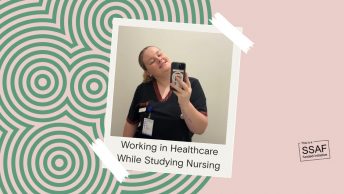This post is over three years old, the information may be outdated.
Whether you’re juggling a casual job while studying or you’re about to commence your graduate career, it’s important to know your rights as an employee. From your take-home pay to your day-to-day, check out our tips below to ensure you’re treated fairly at work.
Know your pay rate
Your minimum pay rate will usually be set in an award or an enterprise agreement. Your pay rate should be set when you are first employed, so it is important that you check it out to ensure you’re getting the right amount.
If there isn’t an enterprise agreement that covers your job specifically, you’re still entitled to at least the national minimum wage.
Set up a super account
Super is money set aside during your working life for when you retire. Your employer is generally legally required to pay a portion of your salary or wages into a super fund for you. Make sure you check what super contribution obligations your employer has depending on your work type (part-time, full-time, contracting, sub-contracting etc).
You can either choose your own super fund or your employer will choose one for you depending on your industry.
It may not seem important right now (after all, there’s a long time until you retire), but every little bit counts towards the future. Your future self will thank you!
Book a holiday
You work hard, and sometimes you need a break and to have some fun away from work.
Annual leave allows an employee to be paid while having time off from work. Most employees (except for casual employees) get paid annual leave.
Annual leave accumulates from the first day of employment and will be paid out at the end of your employment if you haven’t used it!
Take care of yourself
Even though you are at work, the number one priority is to look after yourself.
This includes taking sick leave when you need it.
Sick leave is there for you to take time off for personal illness, caring responsibilities and family emergencies (all employees except casuals are entitled to paid sick and carer’s leave).
Take meal breaks
If you have a meal break, take it. You need food, not to mention most meal breaks aren’t paid – why work for free when you could be eating?!
Check your enterprise agreement – employees who work more than five hours in a row are entitled to a 30-minute unpaid break.
Be safe at work
Safety is a big priority while you are at work. Remember to take reasonable care of your own health and safety and the health and safety of others.
Participate in training and induction to ensure safe work procedures are followed (e.g. how to use equipment and report hazards). Know where the first aid equipment is and what to do if there is an incident.
Your employer has to provide you with a healthy and safe workplace by eliminating or minimising all hazards and risks.










